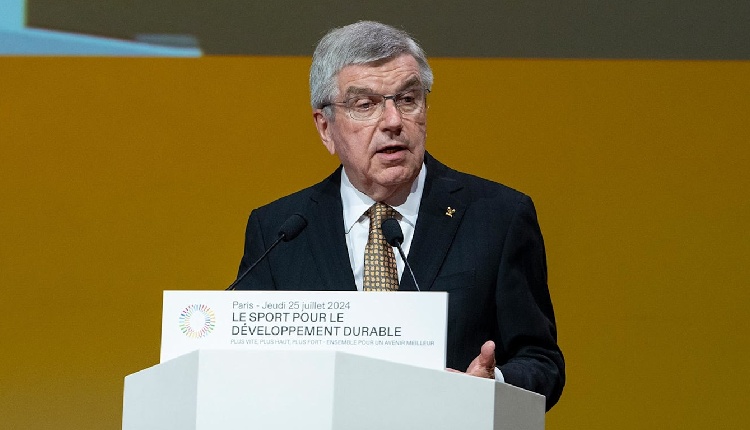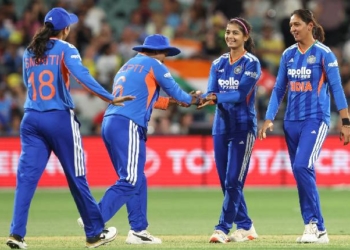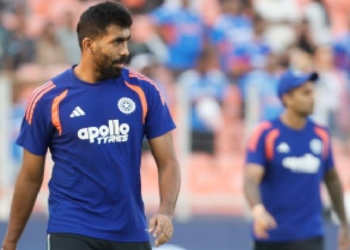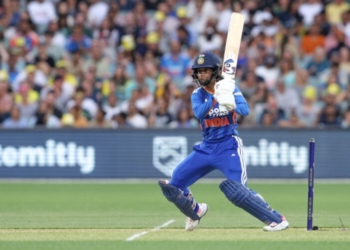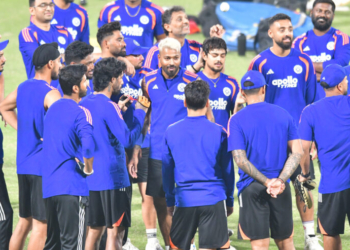Paris: On the eve of the Opening Ceremony of the XXXIII Olympic Games in Paris, the International Olympic Committee (IOC) organised an unprecedented summit in the interests of sport, youth and sustainable development that brought together more than 60 heads of state and government and heads of international organisations and got five global commitments and promises of big investments from IOC, FIFA, private and public entities.
The first Sport for Sustainable Development Summit, the largest meeting ever organised on this subject, took place on Thursday on the eve of Paris 2024. On this occasion, France and the IOC wanted to kick off an unprecedented movement to accelerate the contribution of sport to the United Nations’ Sustainable Development Goals (SDGs) by 2030.
At the invitation of French President Emmanuel Macron and IOC President Thomas Bach, the Summit brought together 500 participants -– heads of state and government, heads of international organisations and public banks, members of the Olympic Movement and socially committed athletes, representatives of civil society and young citizens -– and gave rise to ambitious and measurable political, financial and sporting commitments.
On the political level, the commitments of the Paris Agreement for Sport and Sustainable Development received the support of more than 60 heads of state and government and heads of international organisations, including the Secretary-General of the United Nations, Antonio Guterres, who issued a call for the participants to join the Summit of the Future in September, the IOC informed in a release on Thursday.
This Agreement, to which the Olympic Movement has signed up, consists of 10 commitments around the five main priorities of the Summit:
- Education and employment, to make sport accessible to all school-age children in the world for at least 30 minutes a day, and to promote employability and the acquisition of skills through sport, which is the third largest area of education after family and school.
- Health and nutrition, to reduce the prevalence of physical inactivity by 15% by 2030 and improve the health, nutrition and well-being of individuals, in the run-up to the Nutrition for Growth (N4G) Summit in March 2025, and given that high-school students have lost a quarter of their physical capacity over the last 40 years;
- Equality and inclusion, to make physical activity and sport accessible to all, given that one in three women do not manage to practise sufficient physical activity and that 15% of the world’s population has a disability, with a particular focus on the situation of refugees;
- Financing and impact measurement, to unlock the full potential of sport through the mobilisation of investments and impact measurement;
- Sustainability and legacy, to organise more sustainable and responsible sporting events, aligned with the Paris Climate Agreement.
On the sporting front, the heads of some of the biggest international sports competitions have announced significant commitments:
The IOC, through its President, Thomas Bach, has announced a 10% increase in its budget dedicated to Olympic Solidarity (USD 650 million for 2025-2028). This will support athletes and sports development programmes around the globe, and includes a budget increase to support National Olympic Committees (NOCs) in their endeavours to actively contribute to the IOC’s strategy to strengthen the role of sport as an important enabler for the UN SDGs.
FIFA President Gianni Infantino announced an ambitious programme to install 1,000 sustainable football pitches in schools in support of the 2030 Sustainable Development Goals.
This initiative is part of FIFA’s Football for Schools programme, which aims to make football more accessible to boys and girls, and to strengthen the life skills of young people through football. FIFA reinvests the majority of the revenue generated by its flagship competitions in the development of football.
Over the period from 2016 to 2026, through the FIFA Forward programme in FIFA’s 211 member countries, USD 5 billion will be invested in the sustainable development of football, everywhere and for everyone. This represents a strong global commitment to youth and the future.
NBA Deputy Commissioner Mark Tatum announced that the NBA will work with the French Development Agency (AFD) and other partners around the world to build 1,000 basketball courts in Africa over the next decade.
The initiative is part of the league’s efforts to create more spaces for young people to learn and play basketball, and demonstrates its commitment to using the transformative power of basketball to contribute to Africa’s sporting ecosystem and socio-economic development.
The aim is for the Sport for Sustainable Development Summit to become a recurring event at major sporting events.
On the financial front, the Summit resulted in many organisations promising huge investments like the public development banks and other institutions united in the Sustainable Development through Sports Coalition of the Finance in Common (FiCS) movement committed to investing USD 10 billion and AFD Group of France promising to invest EUR 500 million in sport for sustainable development by 2030.
(IANS)




